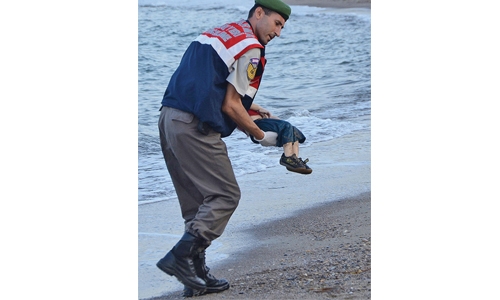UN marks refugee day in syria
Damascus: United Nations agencies marked World Refugee Day yesterday in Syria, a country from which millions have fled a five-year civil war.
Some refugees from other countries have decided to stay in Syria despite the devastating conflict.
“Syria has been a host to refugees for many, many decades,” said Sajjad Malik, the UN refugee agency’s chief in Damascus.
“If you look at Syria’s history it has always been open borders where refugees come and stay inside Syria,” he said.
“It’s unfortunate that the civil war, the conflict here, has resulted in Syrians who have left and become refugees in a number of countries around the world.”
The UN is organising activities in the country involving Syrians and refugees to “raise awareness” and emphasise the message that refugees are normal people who have been forced to flee.
One of the activities was a football match on Sunday afternoon between refugees living locally and UN staff living in Syria, most of them working for the refugee agency, UNHCR.
The match ended as a 5-5 draw, and the UN team declared the refugees the winners.
Hudhaifa, a 23-year-old from Sudan’s Darfur region who studies economics at the University of Damascus and has lived with his family in Syria since 1998, said “my family decided to seek refuge in Syria because of how easy the asylum process was.”
“I can’t go back to my country, which has been at war for years, and despite the war in Syria my situation here is better than it would be there.”
Hamzah Sheikh Mohammad, 22, who is Somali but grew up in Syria, doesn’t see a future outside the country.
“Syria has become my country and I can’t possibly leave it.
“Everyone has their own circumstances that push them to leave, but my presence here is a guarantee of my future,” he said.
Syria faces the worst humanitarian crisis in the world since World War II, forcing 5.6 million to flee to other areas within the country and a further 4.8 million to seek asylum outside.
The war-ravaged country still hosts 31,400 refugees from other countries, mostly Iraq, according to
UNHCR figures.
Related Posts

